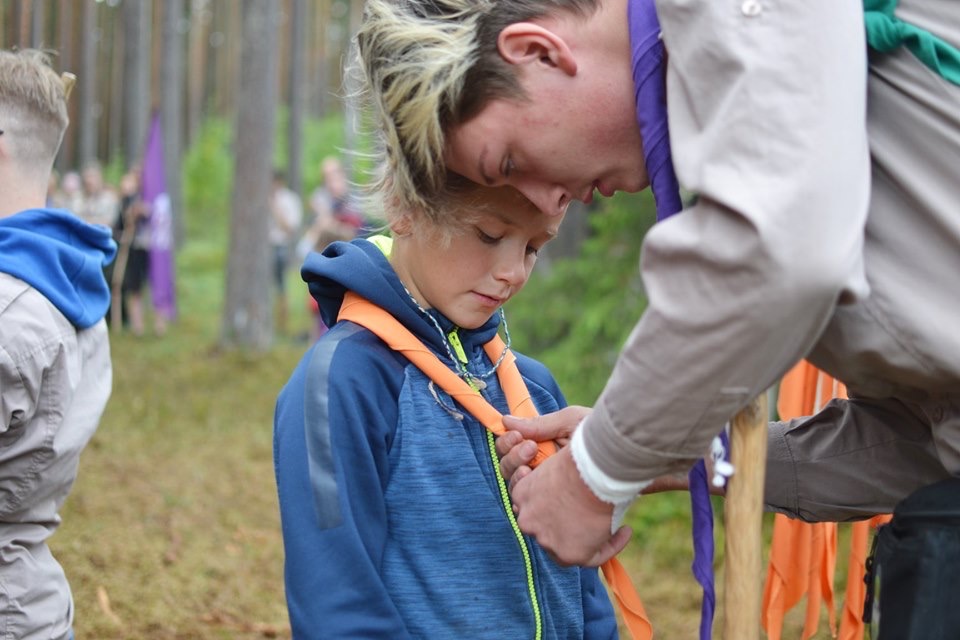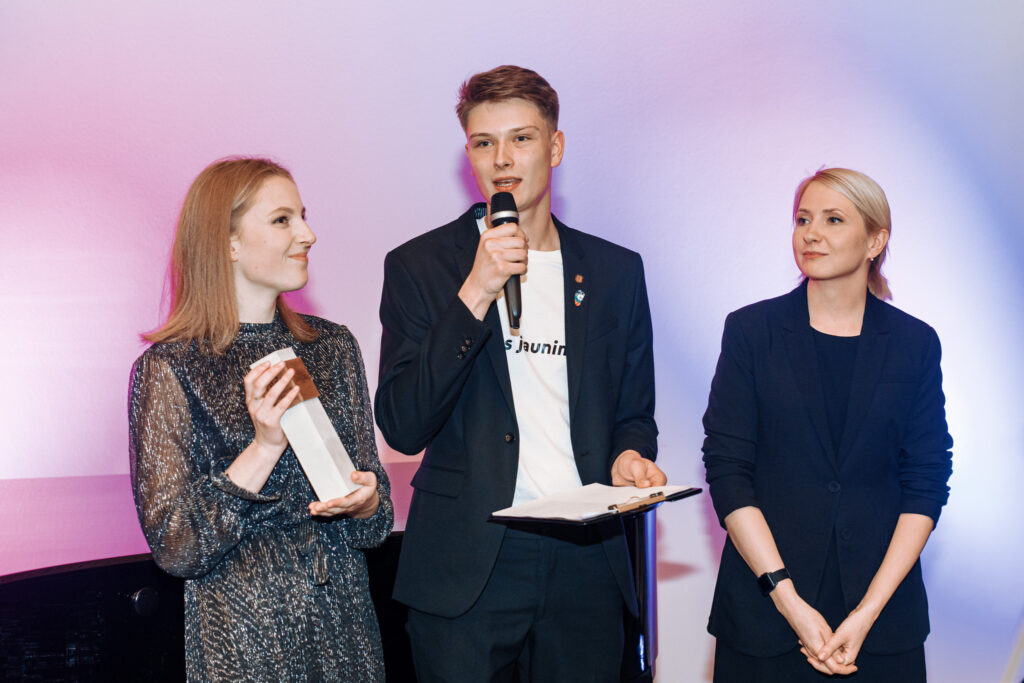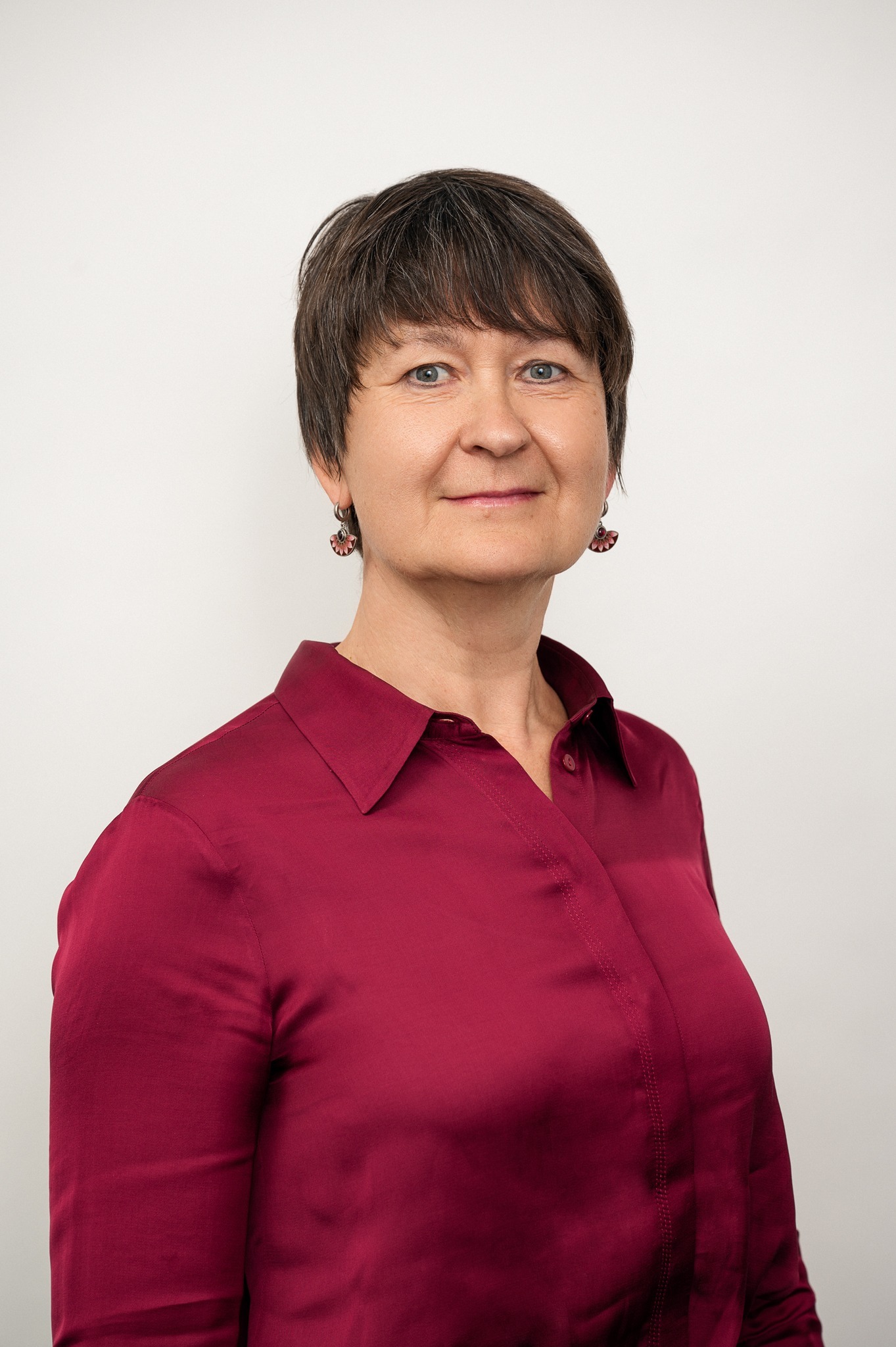“We try to encourage people to participate in decision-making processes, because a lot of young people don’t know about the opportunities they have to get involved. An example is my friends. They are not active in youth organizations, but I know they have ideas and solutions for Lithuania, they just don’t know their opportunities. That’s one of the main challenges Lithuanian Youth Council are trying to solve. How do we create opportunities for all young people, especially those who live in rural areas and regions.”
Paulius Serapinas has been working for Lithuanian Youth Council (LiJOT) for 1,5 years. LiJOT is a network of 68 youth organisations and represents the youth voice on youth policy. Paulius started as Coordinator for International Relations and is now in the position of Programme Coordinator, where he focuses on creating programs and content for the member organizations. He started being engaged in his community 12 years ago when he became a scout. Working at LiJOT allows him to work with youth on a much larger scale.

Photo: Rytis Rakauskas
“In LiJOT we create opportunities for young people in Lithuania through different projects and initiatives. We want to strengthen civil society in Lithuania, which I believe is already strong, but we want to boost it by offering content about civil society and civic participation. LiJOT also represent young people in various structures on questions of national policy with the main purpose of fostering dialogue between young people and decision-makers. Personally, I’m more into creating initiatives and working with civic participation.”
In Lithuania there is a gap between the number of opportunities in Vilnius and bigger cities and more rural areas. It’s hard to get access and knowledge about available opportunities. This is a challenge that Paulius feels strongly about and wants to address through the initiatives in LiJOT. If people are not aware of their opportunities in Lithuania, they are much more likely to move abroad to study and work. Luckily Paulius and LiJOT have plenty of ideas when it comes to finding new, interesting ways of involving youth.
”In our project ‘Participation of young people in decision-making processes’ we organize workshops on specific skills for our member organizations. The first session was about effective communication, another was about how to represent your organization. We also had one about Lithuanian law and organisational law. After these workshops and seminars, the participants will divide into different committees for national level and regional level and work on making decisions for the public sector in Lithuanian on youth policy. It’s a three-year project and we are only in the first year. I think it’s a very valuable project because we are not just providing the organizations a campaign for social media, but really good content and practical skills that they can use to advance the work of their organisations.”
Finding inspiration abroad
The collaboration with Nordic Council of Ministers Office in Lithuania started when the leadership in Lijot started introducing the UN’s Sustainable Development Goals (SDGs) back in 2018. During that summer a delegation from LiJOT was invited to join the ReGeneration 2030 Summit on the Åland Islands. This kickstarted Paulius’ interest in the SDGs and he wanted LiJOT to play a bigger role in integrating these goals in Lithuania. LiJOT adopted a position on sustainable development and this marked the official beginning of their work with the SDGs. This also became the theme for the LiJOT summer festival in 2019 and is the central part of a longer-term project focusing on localizing the SDGs.
“Our partners in the project was Natur og Miljø (Nature and Environment) from the Åland Islands and the Estonian Youth Council. They joined us for the summer festival as the first international visitors. For the group from the Åland Islands it was their first time in this kind of youth festival. They were amazed with the whole event, which was really important for me. I want to represent my country in the best way and give people a good impression.”
Working with partners from different countries is also a great way to learn and share ideas. Showcasing good practices and learning from other countries and youth organisations are very valuable and meeting face to face is a very different experience that social media.

Photo: Joana Suslavičiūtė
“What we see on social media from other youth councils are good examples for us and gives us motivation to want to be as good as they are. But when we meet or participate in activities together, we see that they have the same struggles as us. It’s encouraging and motivates us to work together and learn from each other. We always search for examples, especially from the Nordic and Baltic region. We see what our partners and friends are doing, and we learn and get inspired. And I believe they are doing the same thing.”
Building partnerships and finding like-minded organisations are key elements of growing as an organisation and getting new ideas. Seeing new ways of doing things are crucial for innovation. But good partnership are also about something more intangible. It’s about feeling supported and acknowledged for the work you are doing, so you want to keep going.
“We always say that the Nordic Council of Ministers Office in Lithuania is our biggest partner because it was the first partner who believed in all the things we were doing. Being supported by this kind of organisation is important, not because of the money or the opportunity to go to the Åland Islands, but because of the acknowledgement of our work.”
Being able to support others
Paulius knows the importance of getting that trust and support and is hoping to be able to showcase the possibilities of this kind of partnership to their member organisations in the future.
“The main goal for us is that our member organisations learn about the opportunities there are to receive grants and create projects. Then we could focus on supporting our member organisations writing their applications to do their projects on their topics. After all the current initiatives we will have good examples to show, and hopefully our member organisations can see how it works, get inspired and will feel encouraged to try themselves.”
It’s obvious that Paulius has big ambitions for the impact of LiJOT in Lithuania and beyond. For the future it’s not as much about continuing to receive support and help from the Nordic partners and institutions, but more about passing on this support, help, and investments to others.
“We want to be that older brother for Eastern countries, that the Nordic countries have been for us. We appreciate the money, the investments, the care from Nordic countries to Lithuania and the Baltic states. But more and more we want to show an example for Belarus, Georgia, Ukraine and we want to be that older brother for them. We want to invest, to show examples from our youth sector. We still don’t have the authority and experience to do that as much as we want to, and that’s why we need the Nordic countries to still support us with their experiences so that we can learn from and share.”
Finding partners that support you regardless of age, social status and geographical location is crucial. Many vulnerable groups still need support so that they can begin to solve the problems in their own lives and regions. More opportunities are needed for these people as well. No matter how far Paulius and LiJOT has come, It can still be hard not to compare themselves with others and feel that they are not doing enough. Especially when looking to some Nordic or European countries with more resources and many more opportunities. Paulius understands the value in learning from others but also emphasizes that there are very different circumstances in each country.
“I’ve talked to quite a few Nordic people through different projects. There are a lot of differences, especially when it comes to the number of opportunities that Nordic youth have access to compared to Lithuanian youth. For me, the most important thing is just to show others that even though we don’t have a lot of resources we still do amazing things with what we have.”

Photo: Lithuanian Youth Council
Author: Stinne Friis Vognæs. Photo: Josvydas Elinskas







